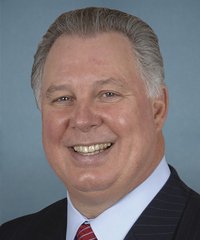
Born in the Cuban town of Bejucal, he grew up in the waning years of pre-Communist Cuba. His family fled in January 1962 with the help of relatives in America. Congressman Sires became a star basketball player at Memorial High School and received a four-year basketball scholarship from St. Peter’s College. He went on to receive a Masters Degree from Middlebury College in Vermont.
Congressman Sires was a teacher and business owner before entering public service. He proudly served as Mayor of West New York, New Jersey from 1995 to 2006. During that time, the Congressman created more affordable housing units than any municipality in the State of New Jersey by fostering public-private partnerships and the use of targeted tax incentives.
Addressing global climate change should be a non-partisan issue. The data is clear – average ocean temperatures are changing, polar ice is melting, and weather is getting more extreme. The cumulative effects of decades of unchecked greenhouse gas emissions mean that our forests are at greater risk of wildfires, coastal states are more likely to experience powerful hurricanes, and communities in the heartlands will experience more flooding.
New Jersey experienced these impacts first-hand in 2012 when Superstorm Sandy came to our shores and devastated our communities. If we don’t act to address climate change, these storms will only become more frequent and more powerful.
Even our nation’s defense intelligence community agrees – its 2019 Worldwide Threat Assessment included warnings about climate change being “likely to fuel competition for our resources, economic distress, and social disruption through 2019 and beyond.”
Our country has the technology to do something about this. Now we have to act.
National Climate Policy
As a Member of Congress, I have been working to address climate change through legislative efforts and the yearly government appropriations process. I have co-sponsored and voted for:
Reducing Emissions in Our Communities
During the fiscal year 2020 appropriations process, I led a letter that was signed by 46 Representatives to the House Appropriations Committee urging more funding for the Department of Energy’s Clean Cities Coalitions program. This program helps cities and municipalities finance the purchase of clean service vehicles – such as police patrol cars and garbage trucks – and install green transportation technology to service them. Organizations in New Jersey’s 8th Congressional District have used this program to replace old diesel trash trucks with new clean energy vehicles.
Climate change is a serious issue that has the potential to be devastating to New Jersey, to the entire United States, and to the world as a whole. No reasonable person disputes this fact, and the 2017 hurricane season has demonstrated this urgent need to address it. The 2017 hurricanes killed dozens in the United States and the Caribbean, uprooted hundreds of lives, and wrought billions of dollars in damage. Storms like these, and like the Superstorm that struck New Jersey in 2012, will become more common as the ocean and atmosphere continue to warm.
Over the past ten years, our country has taken great strides in the effort to curb the impact of climate change by enforcing emissions standards at home and by leading the world in planning for a future where we are not all dependent on fossil fuels. In 2015, the world celebrated the outcome of the United Nations Climate Change Conference (COP21) in Paris, France. This Climate Agreement marked the first coordinated international effort to reduce global carbon emissions and mitigate the effects of climate change. The United States joined 194 countries in agreeing to lower its carbon emissions and to assist still-developing nations to transition away from burning fossil fuels.
Unfortunately, President Trump has decided that the United States of America will cede its leadership role in this historic effort to address one of the most important challenges of our generation by withdrawing our commitments from the Paris Climate Accords. This short-sighted and selfish act not only damages our nation’s credibility abroad, but it also endangers the future of our planet for the sake of scoring political points.
Yet there is still hope. States and cities around the country have remained committed to achieving their own emissions reductions plans, and they are being joined by companies that are dedicated to these goals. The international community will also continue working towards the goal of advancing clean technology.
The United States is the wealthiest and most powerful country in the world. If we get serious about addressing climate change and to reducing greenhouse gas emissions, the rest of the world will follow. Congress, as the nation’s legislative arm, has a role to play in this effort and I will continue supporting efforts to restore the American commitment to addressing climate change.